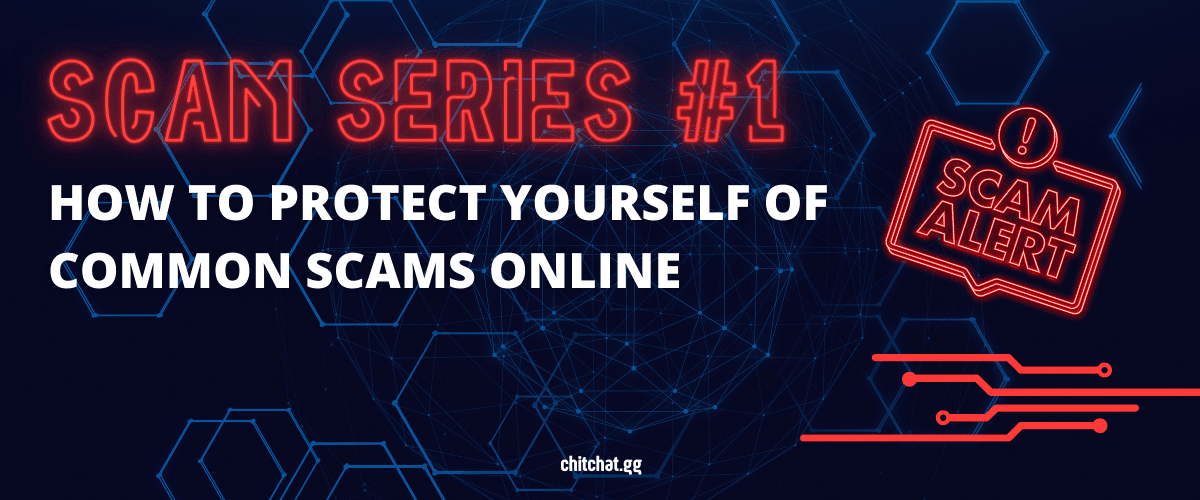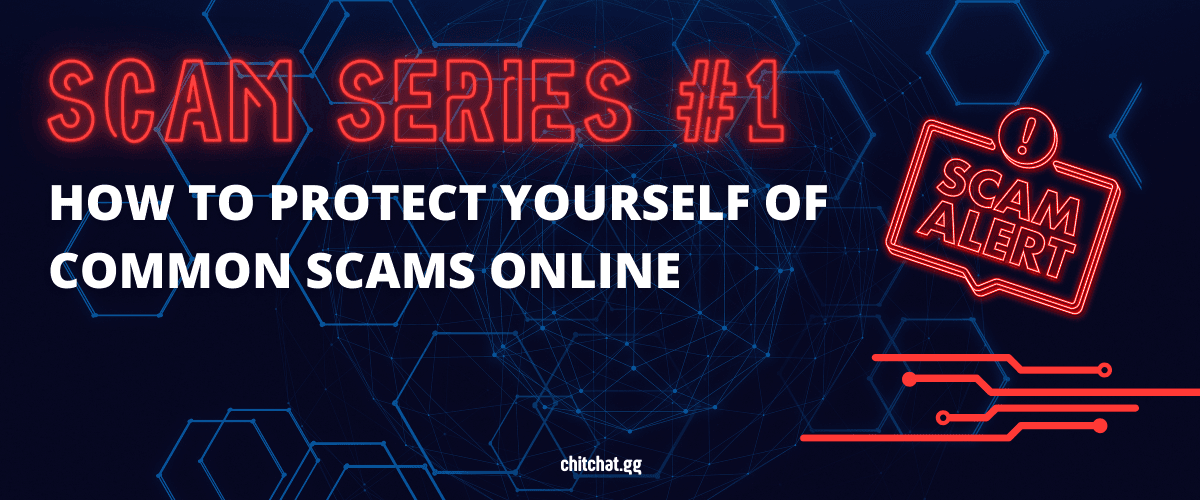
Scam Series #1 - The most common online scams and how you can protect yourself
- Talina
- Online Safety
- 21 Oct, 2023
Online chatting sites provide a fun and convenient platform for connecting with others. Whether you're seeking new friendships, engaging in interesting conversations, or exploring potential romantic connections, these platforms offer a wide range of opportunities. However, it's crucial to be careful and safeguard yourself against scammers who may exploit unsuspecting users.
Scammers use a variety of tactics to manipulate and deceive users. In this blog post, we will discuss the most commonly known strategies used by scammers and provide tips on how to avoid falling victim to them.
Common scamming strategies
Love Scam
A love scam, also known as a romance scam, is an online scam where someone creates a fake romantic relationship to defraud victims financially or steal their personal information. Love scammers target people on chatting websites, social media, or chat rooms, using emotional manipulation to gain trust before exploiting their victims.
Catfishing
This describes a practice in which someone creates a fake online persona, typically on social media or chatting websites, to trick others into believing they are someone they are not. The person engaging in catfishing pretends to be a different age, gender, or identity and often uses someone else's photos or information to maintain the deception.
Content Sellers
These scammers offer to send explicit photos or videos in exchange for money. However, it is highly likely that once the victim sends the money, the scammer completely disappears, leaving the victim empty-handed. To encourage the victim to send multiple payments, the scammer may send them fake pictures as a way to maintain their interest. In many cases, the scammer is a male impersonating a female.
Social Media Blackmailing
With this strategy, scammers lure victims to other social media platforms, such as Instagram or Facebook, where they gain access to their personal contacts, including family and friends. They manipulate the victim into participating in sexual activities online, exchanging explicit photos, or sharing embarrassing personal information. The scammer then blackmails the victim by threatening to send this content to all of the victim's contacts unless they send money.
Phishing Scam
A phishing scam is a type of cyber attack where a person, called a "phisher," tries to trick people or organizations into giving them sensitive information like usernames, passwords, credit card numbers, or other personal or financial data. Phishing is usually done through email, but it can also happen through text messages, phone calls, or fake websites.
Advance Fee Fraud
This is a type of financial scam in which the scammer requests an upfront fee or payment from the victim with the promise of a much larger financial gain or benefit in return. The scam typically involves an offer that appears lucrative, such as a large sum of money, a valuable item, or a business opportunity, but it comes with the condition that the victim must pay an advance fee or expense before receiving the promised reward.
419/Nigerian Prince Scams
In this scam, the scammer typically poses as a wealthy individual, often claiming to be a Nigerian prince or a member of a royal family, who needs the recipient's financial assistance to move a large sum of money out of their country. The scam is named after the frequent use of "Nigerian prince" or similar titles in the initial messages.
Art Commission Scam
In this type of scam, the fraudster usually initiates a conversation with casual small talk. However, they quickly shift the discussion towards art within the first few minutes. They may ask about the victim's interest in art or invite them to view their art on Instagram, where they attempt to gain followers. Eventually, they will ask for payment to create a custom art piece. It is important to note that their art is typically generated by AI or generators, and it is highly likely that the victim will not receive a product in the end.
How can I stay safe and avoid these scammers?
To ensure your safety and protect your personal information, it is important to follow some essential guidelines. By adhering to these tips, you can enjoy the benefits of online chatting while minimizing the risks associated with scammers.
Use trusted sites. While you might encounter these scammers on all places online, you are less likely to engage with them on reputable and trusted sites. We advise you to stick to well-known and established platforms that have a solid reputation for safety and security. These platforms often have robust measures in place to protect their users from scammers.
Protect your privacy. It is essential to be careful when sharing personal information online. Avoid giving sensitive details such as your full name, address, phone number, or financial information to people you’ve only recently met online. Protecting your privacy is key.
Trust yourself. Your intuition is a valuable tool in identifying potential scammers. If something feels off or too good to be true, it usually is. Trust your gut feeling. Scammers often employ persuasive tactics and emotional manipulation to deceive and gaslight their victims.
Never send money of gifts. Be wary of anyone who asks for money or gifts gifts. Scammers may create interesting stories or invent emergencies to convince you to send them funds or valuable items. Be careful and refrain from engaging in any financial transactions with people you have only met online.
Most importantly, report any suspicious behavior. If you encounter any suspicious behavior or suspect that someone may be a scammer, report it to the online chatting site’s moderation or customer support team. By doing so, you not only protect yourself but also help safeguard other users from potential scams.
By adhering to these tips and maintaining a cautious approach, you can enjoy a positive and secure online chatting experience. Staying safe is essential, and setting boundaries and trusting your instincts are key elements to ensure a pleasant and secure online environment.
Stay safe and enjoy your online chatting experiences!
Note: In the future, we will be posting a series of blog posts that delve deeper into some of these scam strategies, providing a more detailed insight.
If you want a moderated and a safe online chatting experience, check out ChitChat, a free online chatting platform that offers a safe and secure environment for connecting with others.





